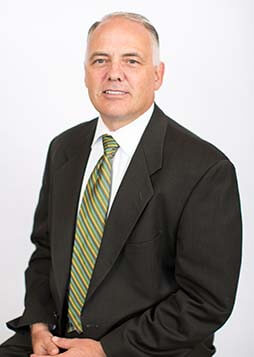Presbyopia Surgery
Comprehensive Eye Care Services in Kansas and Missouri
Discover Vision Centers has been at the forefront of surgery to correct presbyopia. We have been involved in clinical studies for over 20 years. With this work and understanding the safest and most efficient options we are happy to assist patients who want to improve their reading vision with minimal or no need for glasses or contact lenses.
What Is Presbyopia?
Many patients over age 40 come to us seeking help so they can see up close. The problem they are having is an expected aging condition called presbyopia. Lay terms for presbyopia are age-related farsightedness or over-40 vision. Regardless if one is nearsighted, farsighted or has perfect vision for distance some time after age 40 everyone will develop presbyopia. Presbyopia occurs when the lens we are born with inside the eye loses its ability to change shape and focus near objects.
Presbyopia Symptoms and Signs
Presbyopia will affect everyone over age 40. It typically affects farsighted people sooner than nearsighted people. The effects are progressive out to age 65 but after are stable. In everyday life presbyopia affects reading, computer work and reading a smart phone. To combat the effects of presbyopia the first things a patient will do is push things further away to read. At some point one’s arms are not long enough so other cures must be found.
Symptoms of Presbyopia:
- Progressive difficulty reading fine print.
- Tend to push things out to see things clearly (e.g. reading material, menu smart phone, lap-top or desk-top computer screens).
- Eyestrain, headaches and visual fatigue when performing near tasks.
- Symptoms dramatically worsen in low light or dim conditions.
The good news is that all of these symptoms can be resolved with glasses, contact lenses or surgical presbyopia cures.
Presbyopia Vision Correction Options We provide
At Discover Vision Centers we provide several surgical approaches to correct presbyopia. Corneal laser procedures in the form of LASIK or PRK can create monovision so one eye can see up close with one eye and the other for distance. This approach is not necessarily a cure but a strategy to allow a patient to function at more than one distance without having to wear glasses. On the other hand, replacement of the natural lens with a man-made lens implant can cure the presbyopic condition.
Refractive lens exchange is a definitive cure for presbyopia. In refractive lens exchange the clear lens one is born with is replaced by a man-made intraocular lens implant. The procedure is virtually identical to cataract surgery. The type of lens used can either be a trifocal lens implant or a Light Adjustable Lens implant. The procedure is short and most patient are back to full activities one day later. One advantage of refractive lens exchange is one can be functional and avoid needing cataract surgery in the future.
With refractive lens exchange and cataract surgery the natural lens is replaced with an intraocular lens implant. The great benefit of lens replacement is that a lifestyle choice can be made by the patient to select a lens style that can allow for vision across all distances to minimize or avoid wearing glasses or contacts. At Discover Vision Centers we implant Synergy and Panoptix trifocal implants and Light Adjustable Lens implants.
LASIK, SMILE and PRK can be performed to correct presbyopia symptoms. To achieve this one eye is treated for maximal distance and the other eye is not fully treated for distance. This allows the patient to see intermediate and near points as well as seeing distance
There are non-surgical alternatives to help patients with presbyopia. Bifocal, trifocal and “ no line “ progressive glasses can be used. Multifocal contacts are also an alternative as are contacts simulating monovision. Medicated presbyopia correcting eye drops are just being commercialized for patients that are starting to experience presbyopia symptoms. To date the drops are most beneficial for the ages of 40-55.
Corneal Inlays or Onlays
Corneal inlays have been used to treat presbyopia but they have not gained widespread use by surgeons.
Corneal inlays have been used to treat presbyopia but they have not gained widespread use by surgeons.
Conductive Keratoplasty (CK)
Conductive keratoplasty can be performed to induce nearsightedness. Today it is now rarely used.
Am I a Good Candidate for Presbyopia Laser Surgery?
If you have aging eyes and have been diagnosed with presbyopia an eye examination and evaluation for presbyopia surgery is the next step. Your eye health, general health and vision demands or requirements need to be assessed to make sure you are a suitable candidate for presbyopia laser vision correction. With this information you and your surgeon can determine the best customized presbyopia solution for your unique visual needs.
What Causes Presbyopia?
The lens is a small, nearly spherical part that sits inside the eye and helps to focus the light coming in. When you are younger, the lens has the ability to change shape easily. Tiny muscles contract and relax to control changes in the shape of the young lens, and this flexibility allows your eyes to focus over a broad range of distances. As we enter middle age, just as we also begin to notice the subtle aches and pains of aging in our bodies, the eye’s natural lens becomes thicker and begins to lose its flexibility, resulting in vision problems.
Presbyopia or the ‘ aging eye ‘ is a natural condition as we age where near vision task become more difficult. It starts about age 40, progresses in severity to age 65 and then remains stationary. The natural lens that sits behind the colored part of the eye called the iris loses it’s flexibility, becomes rigid, and no longer allows for objects within arms length to be focus. So, reading, viewing a smart phone or computer screen becomes limited if not impossible. Patients frequently complain of eye strain, headache, blurring, and fatigue quickly.
Why Choose Discover Vision for Presbyopia Eye Surgery?
If you are experiencing age-related presbyopia Discover Vision Centers has over 50 years of experience in helping patients overcome their complaints. With state-of-the-art techniques the surgical solutions have never been better.
Our Doctors
Dr. John Doane has been providing presbyopia solutions for patients in Kansas City for over two decades. He is nationally and internationally known for his commitment to education and research on presbyopic and refractive surgery techniques.
Reviews
Contact Us to For Presbyopia Treatment Today!
FAQ
Does everyone get presbyopia?
Everyone over age 40 will experience the visual effects of presbyopia. The effects worsen from age 40 to age 65 but are stable thereafter.
How does presbyopia affect everyday life?
Presbyopia affects everyday life by reducing or preventing one from being able to read up close.
Does insurance cover presbyopia treatment?
Refractive error is not considered a medical coverage condition. Presbyopia is a subset of refractive errors so insurance will not cover treatment of presbyopia with glasses, contact lenses or surgical procedures.
Does untreated presbyopia lead to blindness?
The good news is that untreated presbyopia will not lead to blindness.


